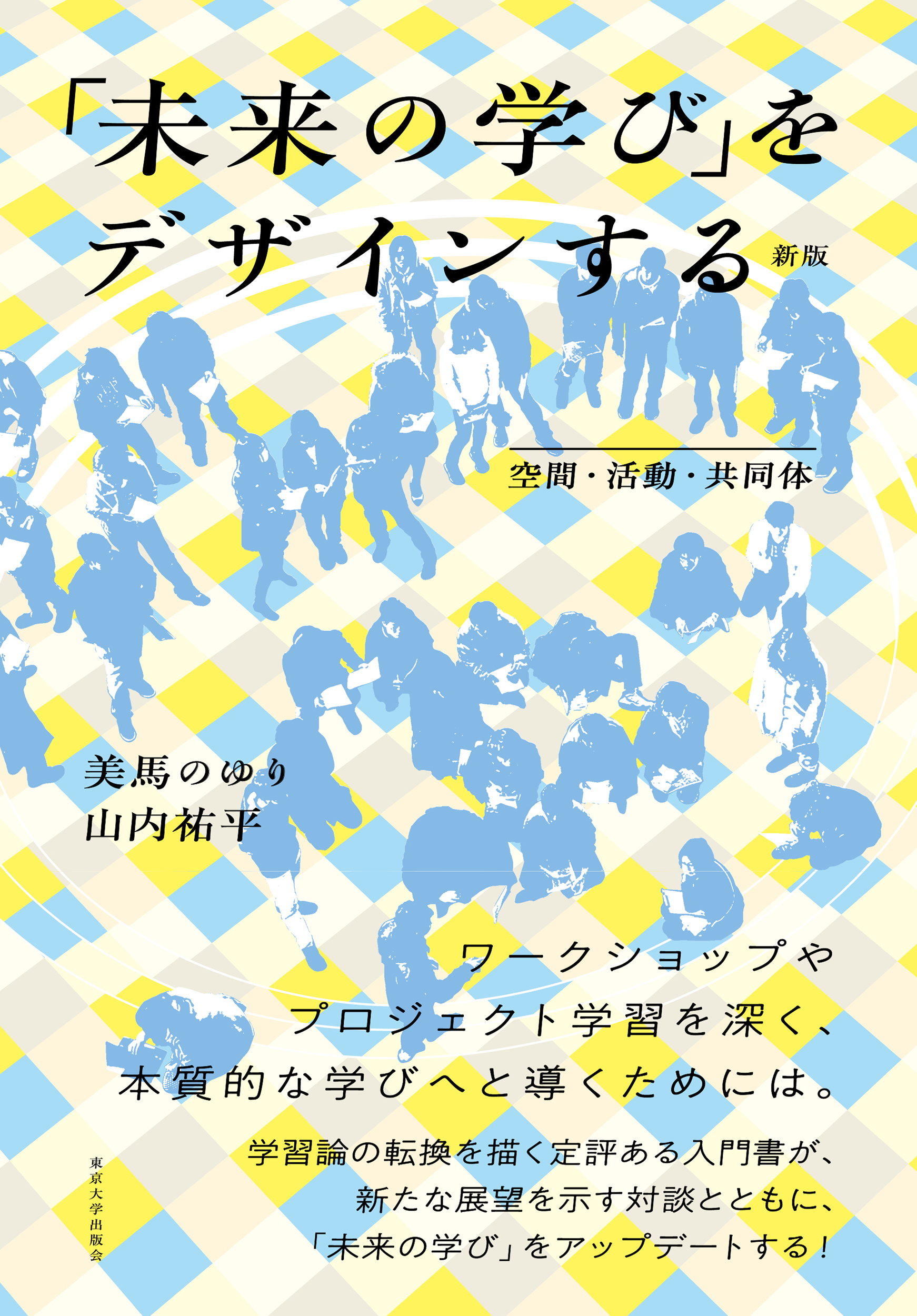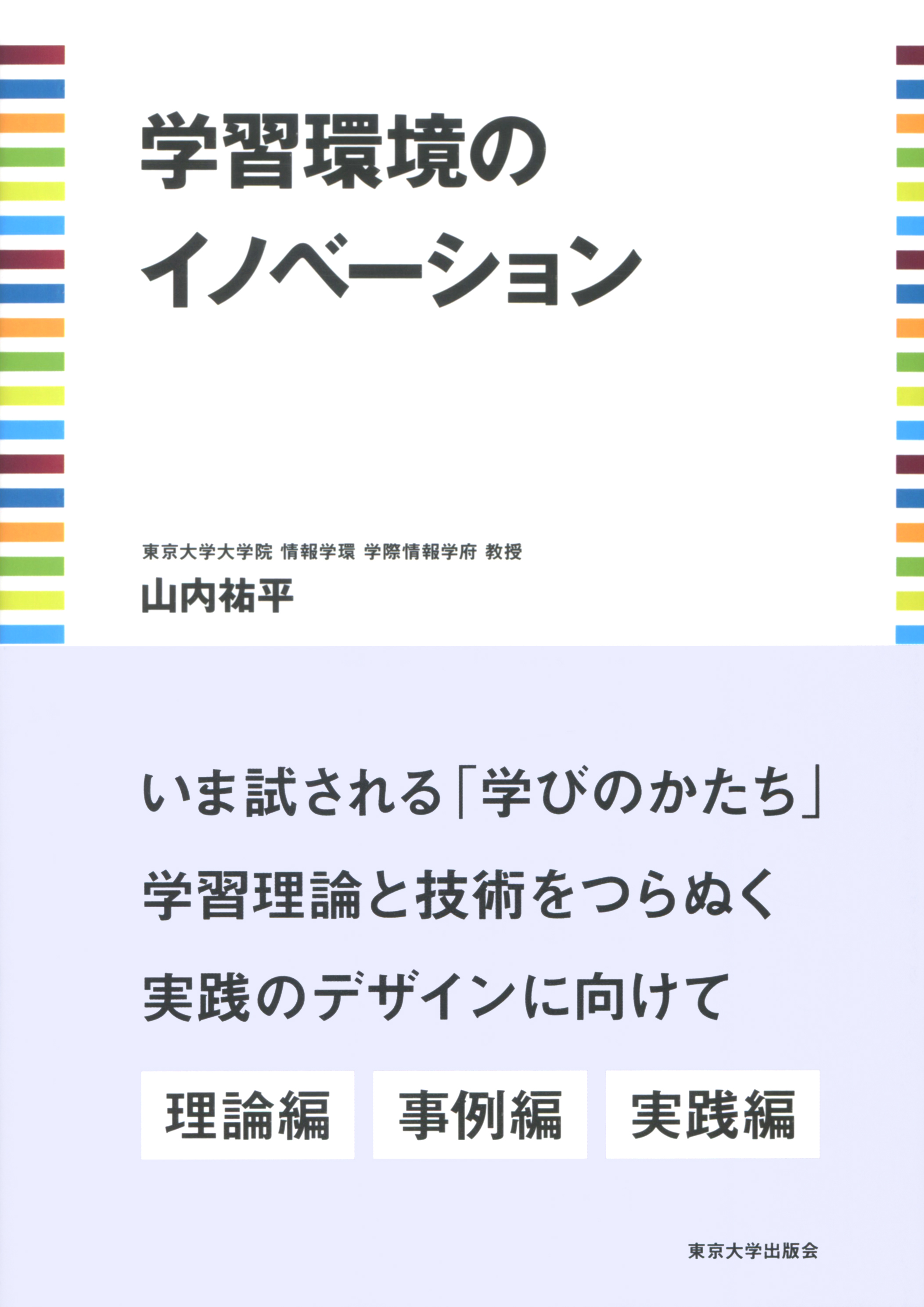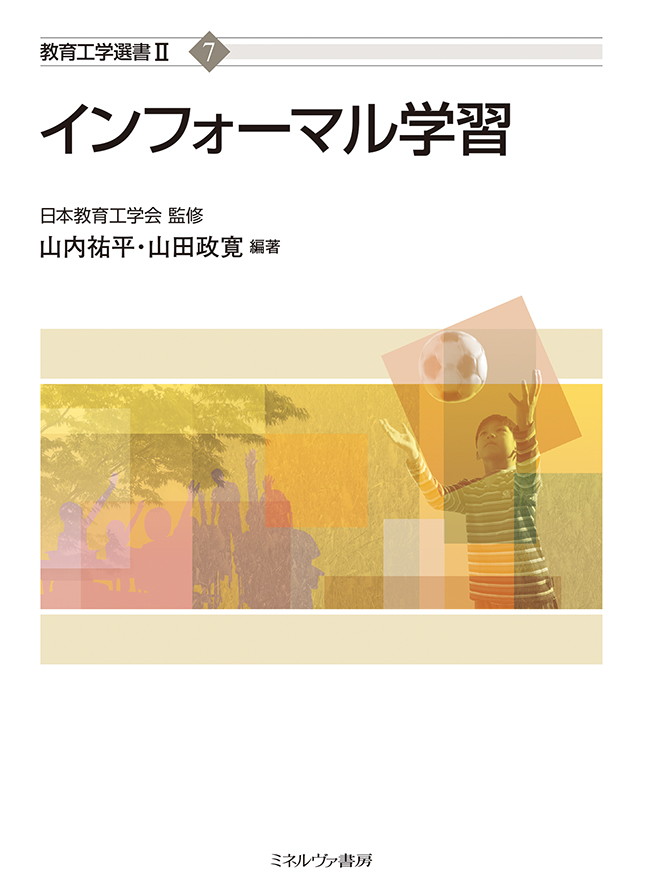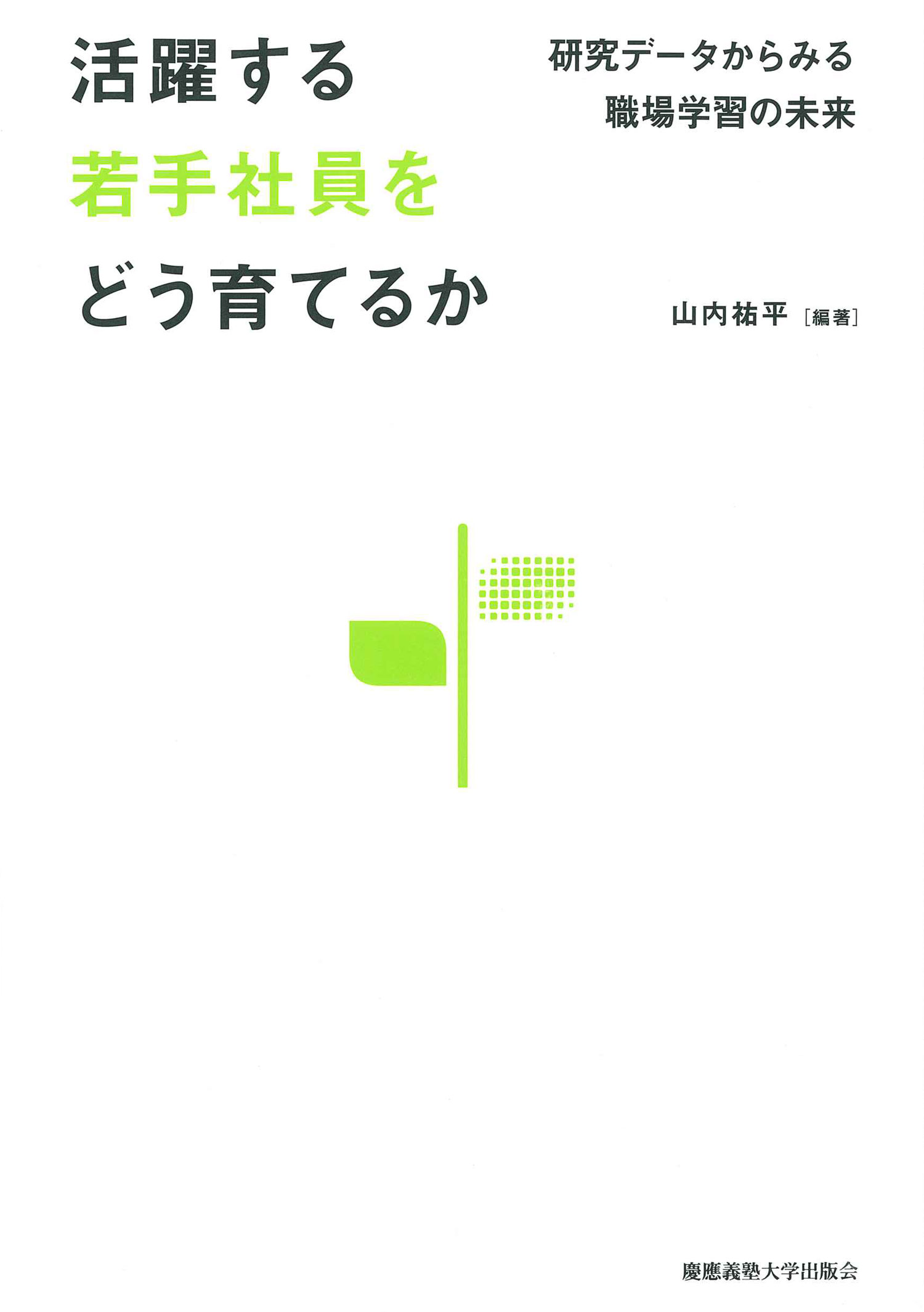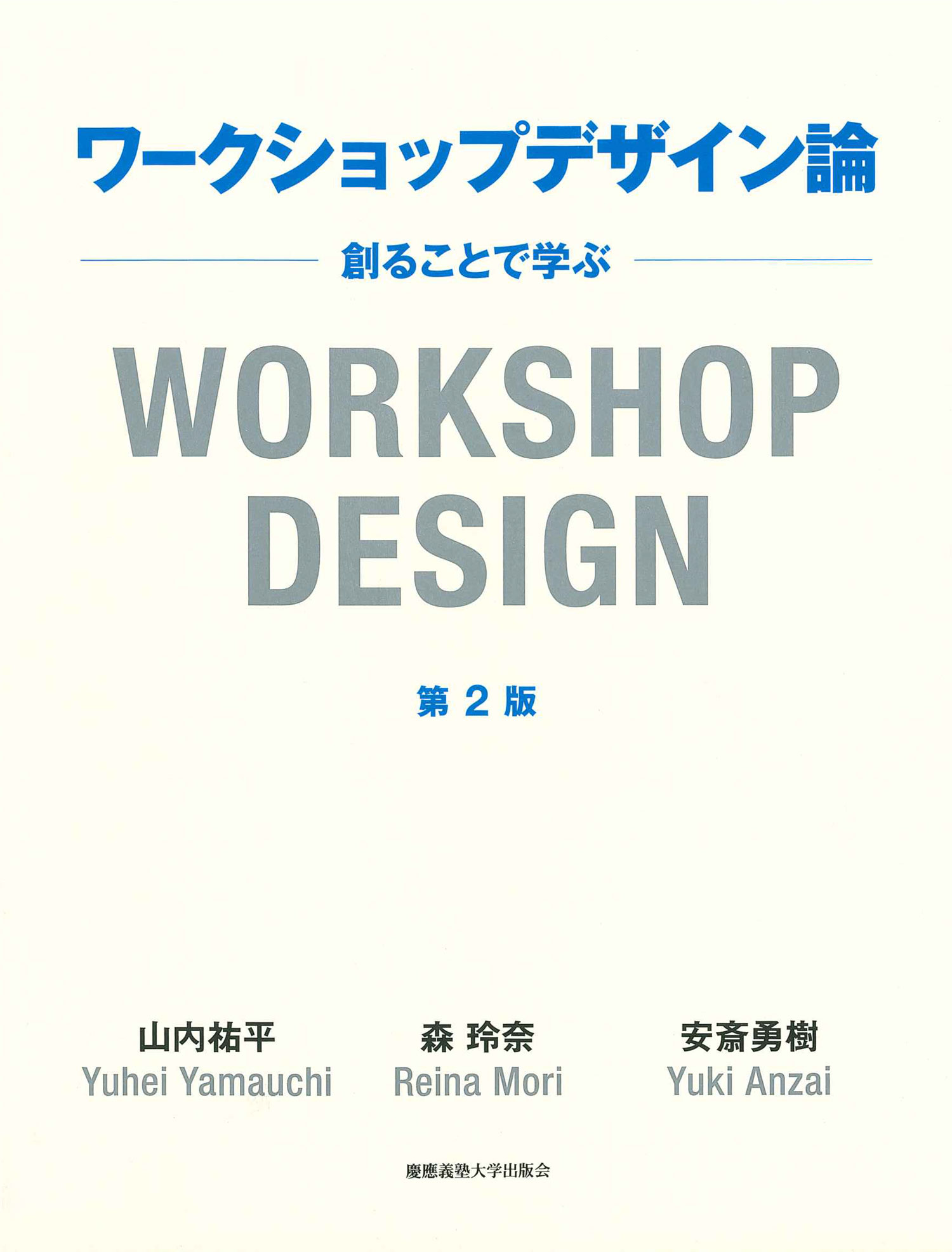
Title
Workshop design-ron (Workshop design theory – 2nd edition)
Size
264 pages, A5 format, softcover
Language
Japanese
Released
January 15, 2021
ISBN
978-4-7664-2720-2
Published by
Keio University Press
Book Info
See Book Availability at Library
Japanese Page
Workshops are learning and creative techniques used for a variety of purposes. The theater has the longest history of using workshops in practice, but workshops are now used in various formats, and have different elements, such as time setting and facilitation methods, depending on the area. However, almost all workshops have creation or learning activities as a common element. This book advances the discussion that workshops are positioned as “learning activities through creation”.
In workshops, learning occurs through the active experience of the participants. This type of learning is called Experiential Learning, and it has a history of more than 100 years of research and practice.
Dewey and Kolb are well-known researchers of Experiential Learning, and while this book provides an outline of their research, it also introduces Creative Experiential Learning from a new perspective, that is, the concept of learning activities through the “creation” of new ideas and formats.
The background to the recent focus on workshops is that outcomes, such as creation of new ideas and fostering creativity, have been prioritized as learning goals within social situations that demand innovation. Therefore, there is now a need for the Experiential Learning required in workshops to be creative, rather than inheriting stable knowledge and techniques.
The essence of creative activities is to confound people’s expectations, so envisioning a complete plan in advance would literally contradict that concept. This book examines design models to design activities involving intrinsic uncertainty, and introduces methods to implement these activities.
Workshop design is the process of creating activities where stakeholders work together to create and learn, to generate learning through experience. These creation processes are intentionally conducted as informal learning, and this practice is being extensively followed in various fields. This book clarifies the overall picture of workshop design theory by presenting the following design processes. Chapter 2 presents information on planning, Chapter 3 addresses the process of conducting workshops, Chapter 4 provides a detailed discussion on evaluation, Chapter 5 describes the professional development of workshop practitioners who support the design process, and Chapter 6 presents the viewpoint of learning environment design theory.
Workshop design generates creative answers for the task of designing workshops, and this process can be regarded as a “meta-workshop” in the sense that the process allows the reconsideration and learning of the process in the form of an evaluation of the experience of workshop design. Linking these types of activities should enable the designers and participants of workshops to connect through creative learning.
(Written by YAMAUCHI Yuhei, Professor, Interfaculty Initiative in Information Studies / 2021)



 Find a book
Find a book


 eBook
eBook